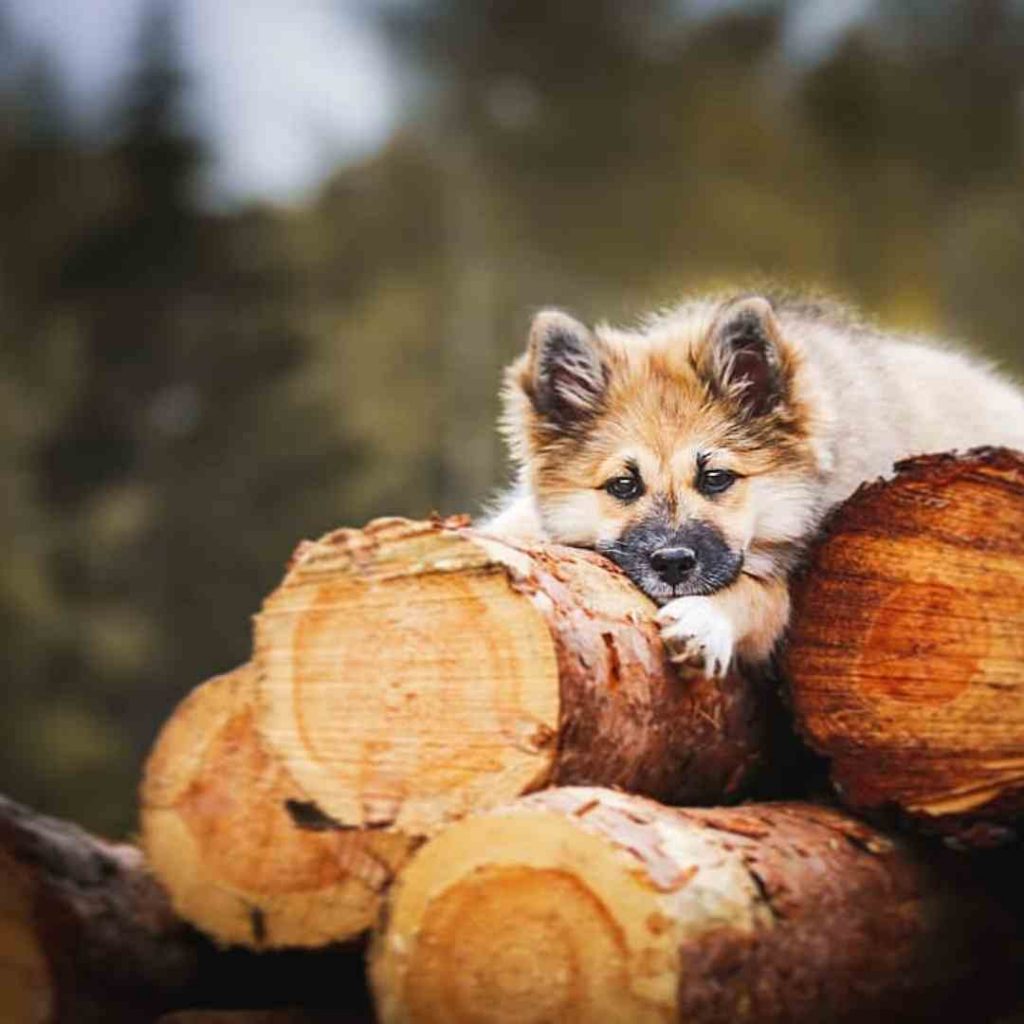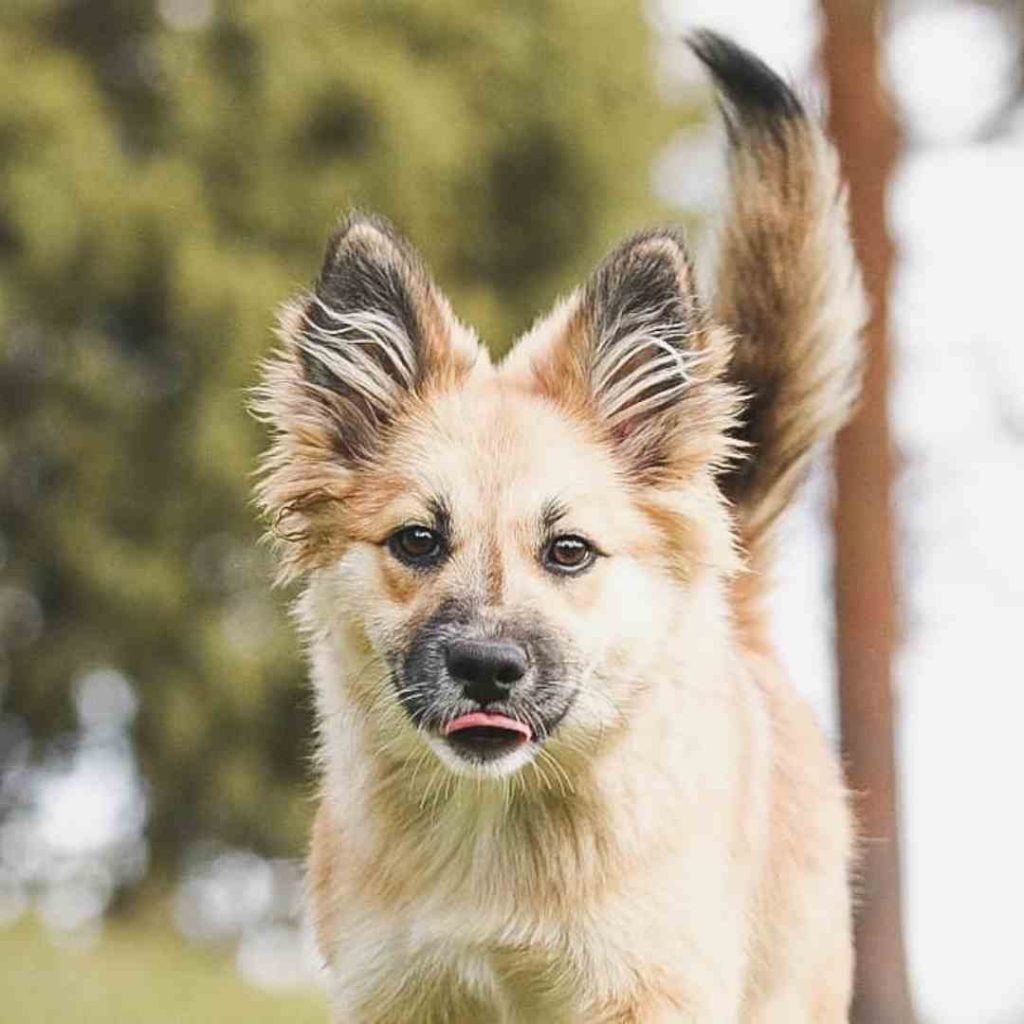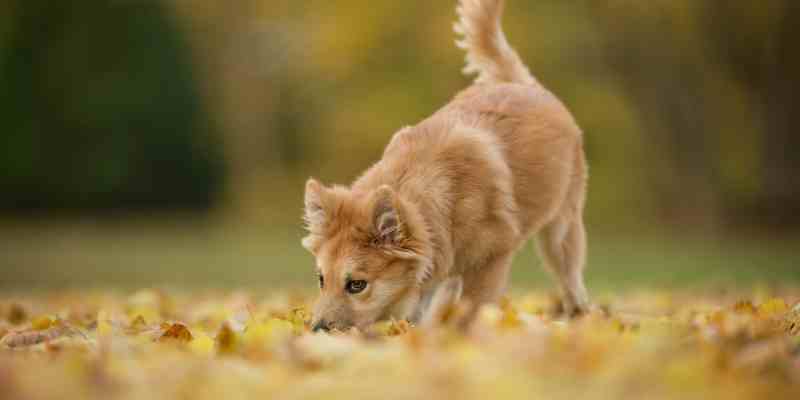The Icelandic Sheepdog, is one of the totem creatures of Iceland. Its lively character, noisy bark, and thick coat make it the perfect ally for any Icelandic rancher. Particularly for the farmers who need to herd their sheep, horses, or cows in enormous open fields in any climate! This popular spitz-type hound breed was brought to Iceland by the primary Viking pioneers. The breed has been around for more than 1,100 years.
Are you interested in a particular topic about this breed? Then use the table of contents below to jump to the most relevant section. And you can always go back by clicking on the black arrow in the right bottom corner of the page. Also, please note that some of the links in this article may be affiliate links. For more details, check the Disclosure section at the bottom of the page.
- How else Icelandic Sheepdog called?
- Icelandic Sheepdog: breed specifications
- Icelandic Sheepdog size
- The lifespan of Icelandic Sheepdog
- Icelandic Sheepdog traits
- How easy is it to train Icelandic shepherd?
- Does Icelandic Sheepdog shed?
- Icelandic shepherd: grooming and care
- Icelandic shepherd: possible health issues
- Icelandic Sheepdog: is it right for you and your family?
How else Icelandic Sheepdog called?
Some of the common names for this breed are Icelandic Spitz, Iceland Dog, Canis Islandicus, etc.

Icelandic Sheepdog: breed specifications
| Average Weight | 25 - 30 pounds |
| Average Height | up to 18 inches |
| Average Lifespan | 12 - 15 years |
| Easy to Train | Yes |
| Shedding | Seasonal |
| Hypoallergenic | No |
| Energy Level | High |
| Space Requirements | Both larger and smaller place would be fine |
| Personality | Friendly, playful, smart |

Icelandic Sheepdog size
The Sheepdog is a fiery medium-sized dog with double, pointy ears and thick coat. Their size would be medium, up to 18 inches tall. Its average weight will be around 11-14 kilograms (25-30 pounds).

The lifespan of Icelandic Sheepdog
The lifespan of the dog varies from 12 to 15 years and depends on how well the pup is taken care of.

Icelandic Sheepdog traits
The Sheepdogs are energetic and loving. They coexist with different pets and are agreeable to outsiders. Much the same as most grouping breeds, these pets are free-masterminds and ready to take a shot at their own; they’re also faithful and kind.

As can undoubtedly be perused from the breed’s name, it is most importantly a working dog and a guard dog. Icelandic Sheepdogs utilize their bark to save animals in a group. You’ll hear their voice frequently, as these pooches bark when they need something or feel like they should be in charge.

How easy is it to train Icelandic shepherd?
It’s no big surprise that alongside searching for a pet that is extremely simple to have, numerous people need a doggie who will effortlessly adapt new tricks. And this breed fits the description.

Does Icelandic Sheepdog shed?
Their double coats shed like that of the average dog. Yet Icelandic Sheepdogs shed their undercoat two times a year.

Icelandic shepherd: grooming and care
The Sheepdogs have an outer coat and an undercoat. Even though they have thick twofold covers, they require insignificant prepping. Brush them once to a twice week. And two-three times per week in between the seasons when shedding gets more exessive.
Frequent washing isn’t required with this breed as the coat is moderately simple to keep spotless and looks good as long as you comb it as suggested. Regular nail trimming and ears cleaning is also required.


Icelandic shepherd: possible health issues
There are no common medical problems that are known to be connected with this particular breed. However, there are specific issues that all the dogs can’t avoid. Those include hip dysplasia, for instance.
Regular vet visits will ensure that your pet is healthy and live a long and active life. If you expect to purchase an Icelandic Sheepdog from a breeder, get some information about any medical tests of its parents to identify all potential future health risks.

Icelandic Sheepdog: is it right for you and your family?
Icelandic Sheepdogs are warm, kind, and fun-loving. These friendly canines like to be at the core of family life and make a great company. They’re excellent with kids too. And since those are small dogs, they can’t represent a significant danger for little kids. All in all, a lovely breed to have around.
Credits: thanks for the photo to Canva and cutest pup called Lulu from @wolff_and_foxx


